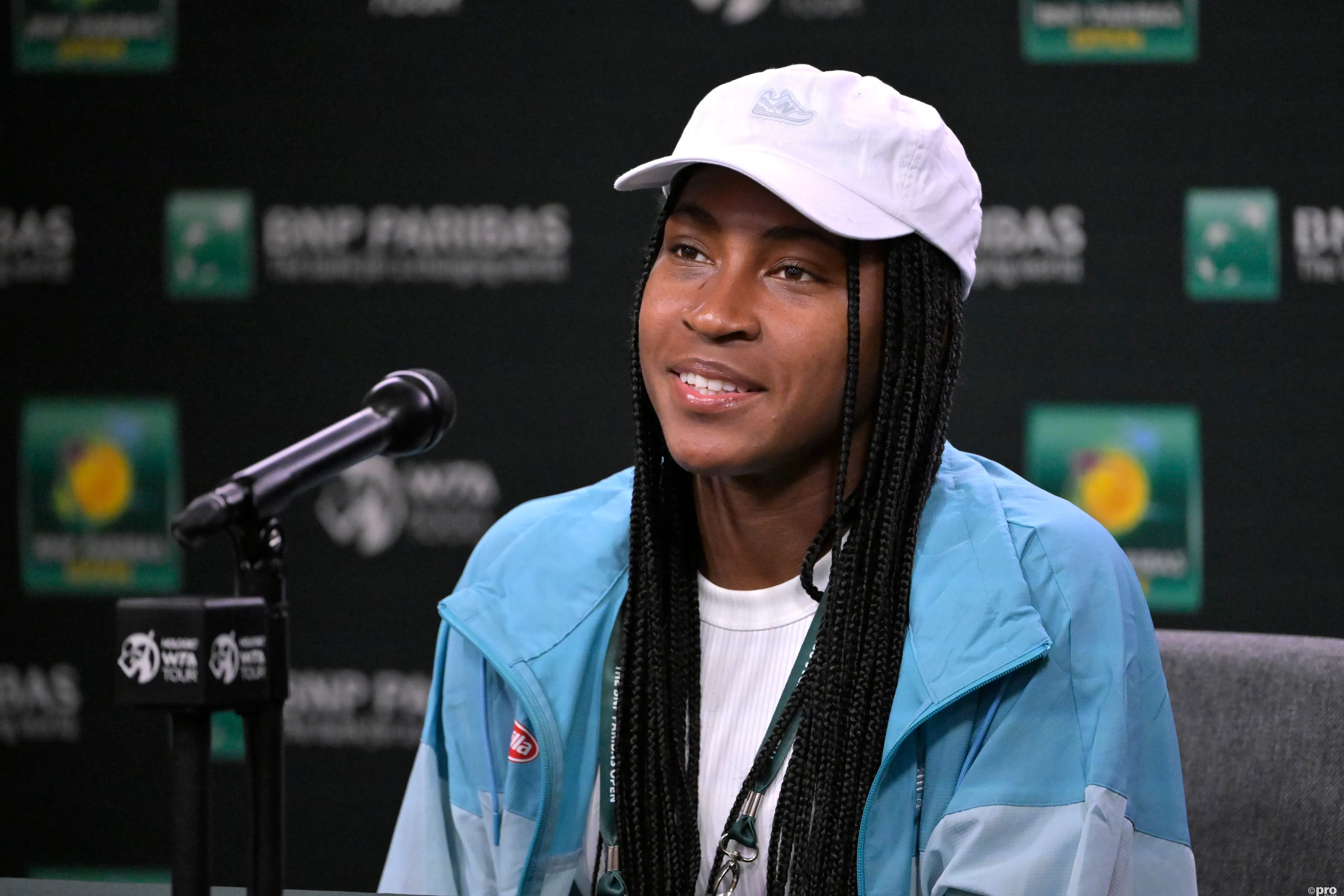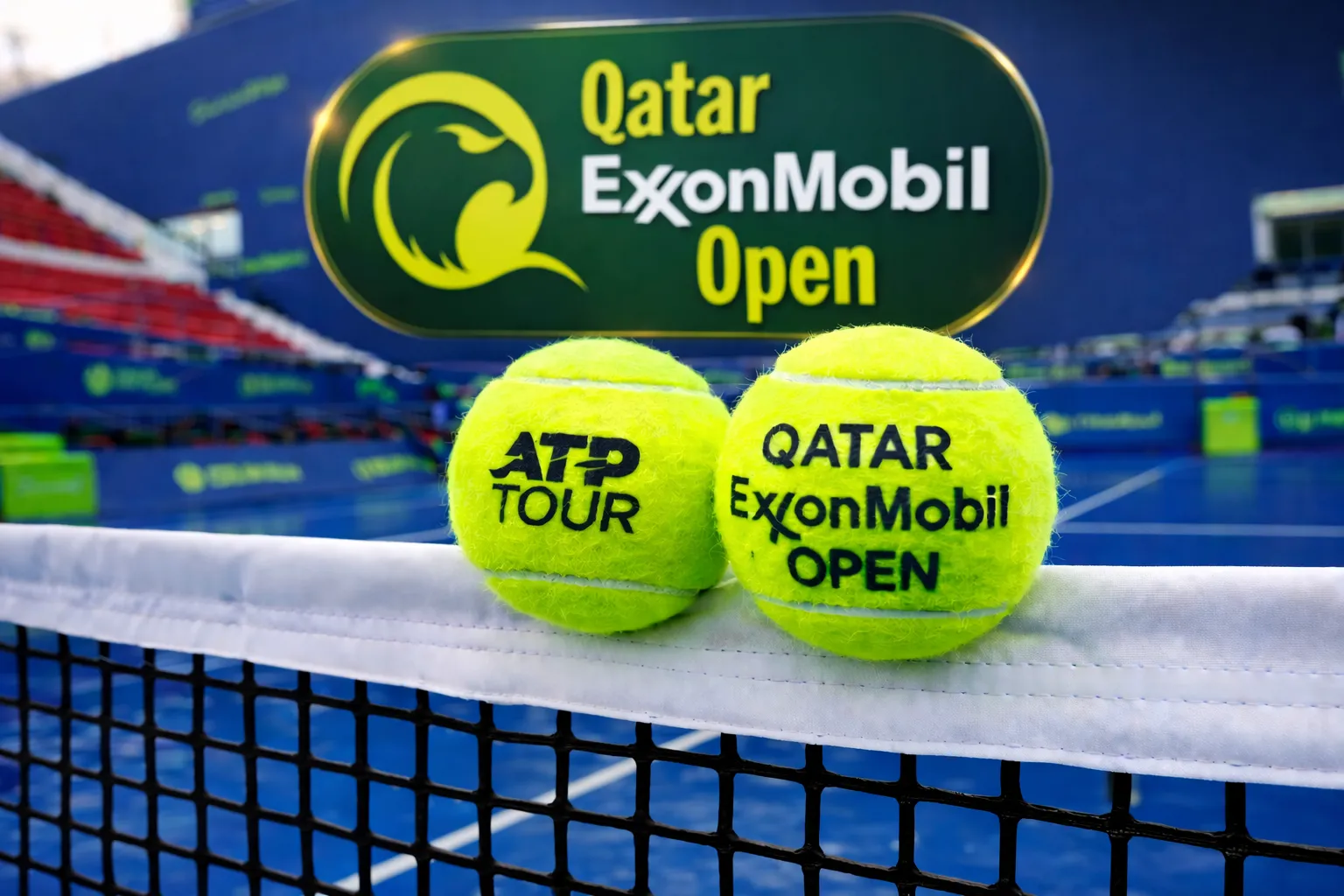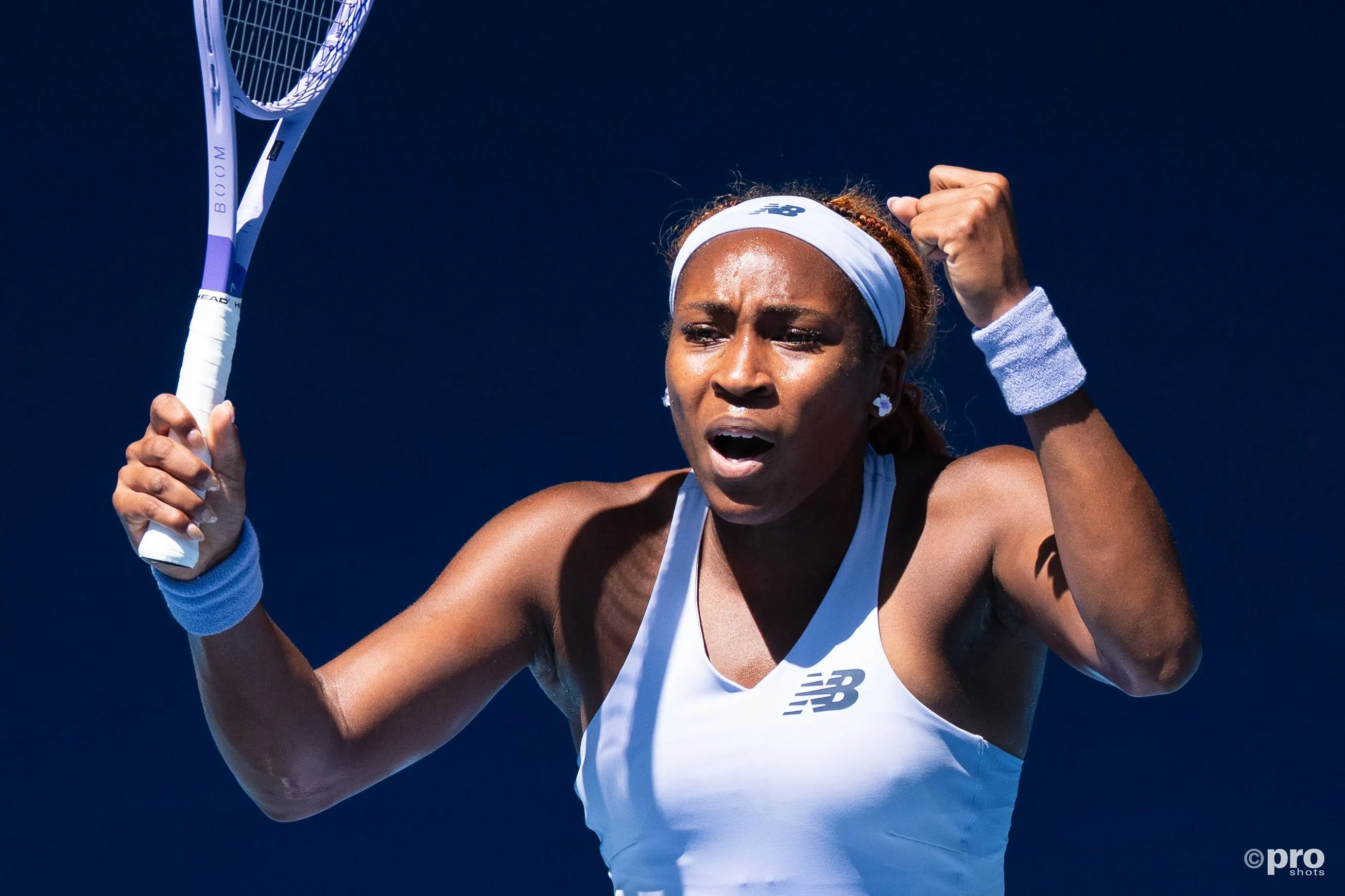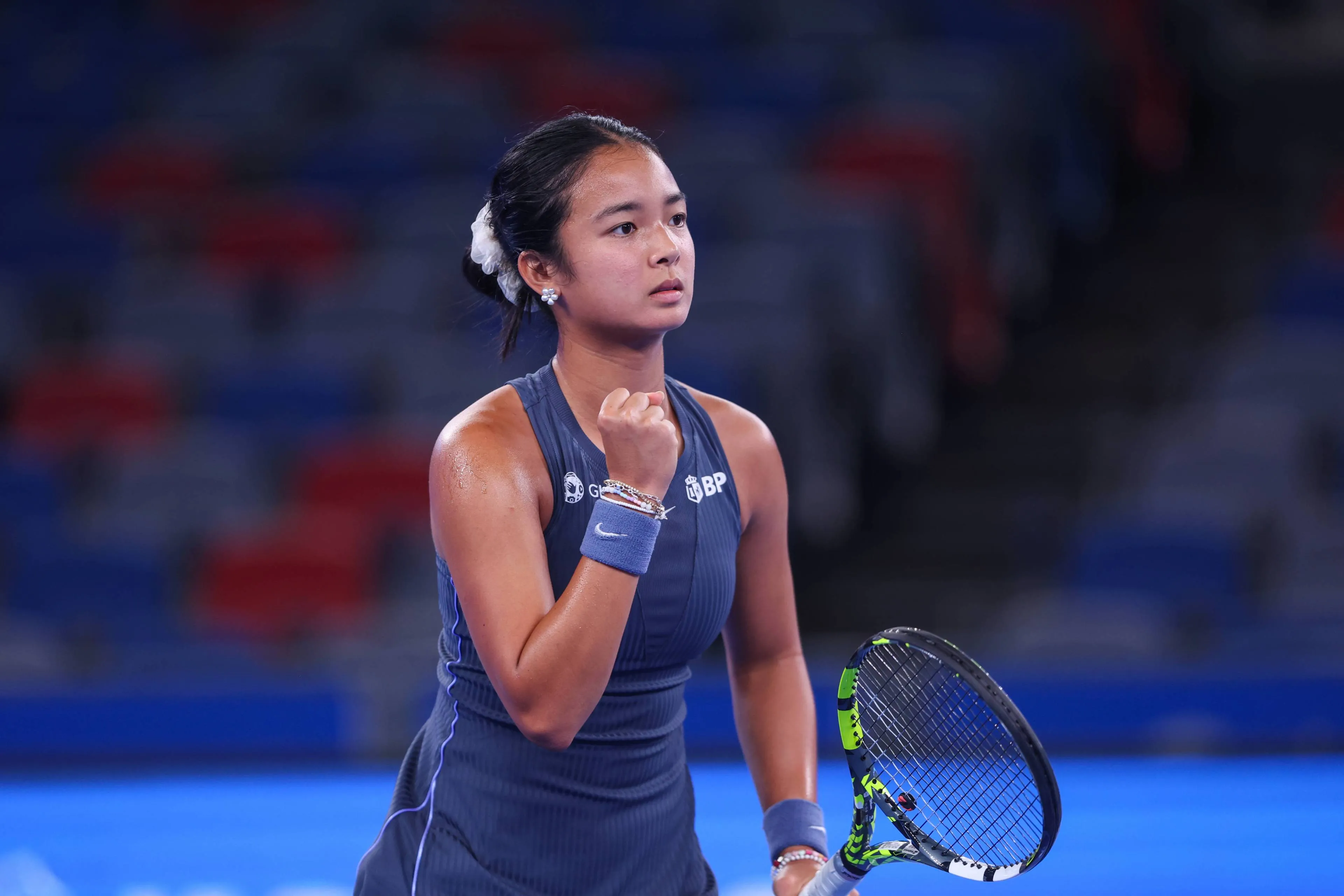"You complain about conditions, you end up in jail or tortured": Human Rights campaigners balk at WTA Finals move to Saudi Arabia
Tennis NewsThursday, 11 April 2024 at 19:00

Human rights campaigners have hit out at the WTA for deciding to host the WTA Finals in Riyadh, Saudi Arabia with the move set to take place for three years between 2024 - 2026 amid concerns surrounding human rights and gender equality.
Human Rights Watch (HRW) spoke out to publication i hitting out at the WTA for failing to stand up for their members and that players will have to be silent or risk going to jail if they speak out on conditions. Martina Navratilova and Chris Evert for instance have spoken out heavily against the move also for LGBTQIA+ players who may qualify. Figures in Saudi Arabia asked the duo to come over and see that their view was wrong as they aimed to help stop the move. But the long mooted deal was still confirmed as of last week. Players such as Jessica Pegula, Ons Jabeur and Victoria Azarenka have spoken in favour of the move though. But it is likely to be an issue heavily debated in the months to come.
“The problem with the WTA taking this money is that it transfers the responsibility to advocate for women’s rights and LGBT rights on to individual players,” Minky Worden who is HRW’s director of global initiatives said as per newspaper i. "At the same time, they’re expected to go to an environment where for LGBT players, they’re not allowed to exist in law, policy and practice by the Saudi government.
Read also
“It’s certainly an invidious situation for players who would be expected to speak up about human rights in Saudi Arabia, when the Saudi government has authorised targeted killings for people who do just that. If you complain, you go to jail. So that puts the WTA and players in a super bad spot. You complain about women’s rights conditions, you end up in jail and tortured. So which women’s tour player wants to be asked about the women’s rights defenders who are in jail while they’re playing tennis? Whatever the prize money is, it puts them in a very difficult moral spot and ethical spot.”
She added: “It’s only since 2018 that women and girls have even been allowed to drive and play sports. Yes, there has been some progress in that area, and it has been due entirely to the women’s rights activists, many of whom have suffered imprisonment and torture. I think the core problems of the underlying human rights crisis in Saudi Arabia are not addressed. None of the federations, not the ATP, not the ITF and not the WTA, have in place a human rights framework that would allow them to even do human rights due diligence. There aren’t any women’s rights defenders in Saudi Arabia they can interview about the problem. They’re all in jail, or under house arrest.”
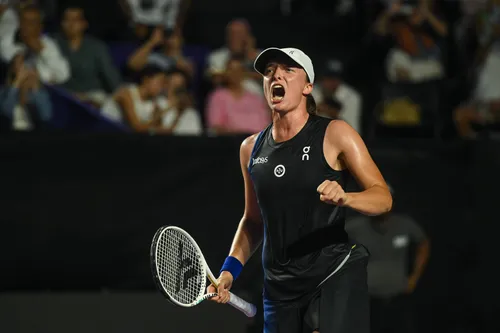
World No.1 Iga Swiatek won the title last year in a fractious Cancun tournament.
The WTA responded to the piece from the i saying that they have a responsibility in their view to grow tennis in the country and also have received assurances their players will be safe. “As a sports organisation, our principal focus is on how we develop women’s tennis for the benefit of everybody involved with the game. We believe it is the right thing to open up new opportunities for women to play professional tennis in different countries, and to give audiences in those countries the opportunity to watch the world’s best players. The rapid development of women’s sport in Saudi Arabia is clear, and we see a positive opportunity to support the growth of tennis at all levels.
“Alongside that, we understand that the growing investment in sport by Saudi Arabia is a subject that provokes strong views. We have engaged with a range of voices inside and outside the sport during our decision-making process and will continue to do so over the coming months. Our focus is on making sure that players, fans and other attendees have the best possible experience at the WTA Finals. We have received assurances in this regard from the event organisers and we do not anticipate any issues, in line with the positive experiences of other sports that have held events in Saudi Arabia.
“We will always support our players’ right to express themselves freely. As a global sport, with players from almost 90 nations, we go to many countries around the world that reflect different cultures and value systems and we respect those local customs. The WTA has had a presence in the Middle East for many years and we have never had any issues with freedom of expression.”
Read also
claps 0visitors 0
Just In
Popular News
Latest Comments
- You seem to have 'lost the plot' ??
- This needs to be done, and I think Jessica Pegula is an excellent choice for chair to look into the situation. However, a very brief look at the other members of the panel would suggest a very USA heavy contingent. The group needs to represent all interests, not just turn it into a way the US can screw more money out of an already biased calendar.
- The tennis world should be kissing her feet for taking-on this long needed position in a much needed council. The WTA and ATP need a good shaking-up. Pegula's business heritage is a proven one. Let's hope she and her colleagues can stop WTA & ATP from shutting their work down and out. GO GET 'EM !!
- So the Sportswasher's largest market is... the Filipino community? That's all well and good but the hundreds and hundreds of empty seats throughout is embarrassing. Talk about bad optics!
- The poor Head Sportswasher has been whining and crying in the media, and basically threatening Saba, Iga, etc. Must be a real Ego Buster when they dangle money and people (especially Women) say, 'No thanks'.
- "Losing-itis" is not uncommon in Emma's small world. Just keeps begging the question, 'What are sponsors paying for? Limited tennis appearances... or Social Selfie Media presence?'
- Dubai can suck it up like everyone else. Just because they think they run the show, they do not. Sportswashing does not give them Power.
- You're losing your mind here.. You use a lot of space, yet inadequate knowledge. Read the WTA Rule Book 2026; it answers all your questions and accusations.
- Why single out Iga and Aryna to punish?, Since when do players get punish because they withdraw from tournaments? Maybe if they both were treated like number one and two players, they would not have this problem. The WTA discriminates against them because of their nationalities, yet they want to make money off them. Every tournament, Iga has harder draws than qualifiers from the beginning to the end. In the Australian Open they stuck Aryna out in the sun the majority of her matches in order to tire her out. She is the number one player in the world and she never got the opportunity to play with the roof closed. If they want these top players to continue playing and making money for them, then they should treat them as such. Otherwise, get the players who they are always giving out cupcake draws to like Pegula to play their tournaments. Lets see how many seats in the audience she will fill. Iga has more fans in the seats than any player in the WTA, yet she is always disrespected and mistreated because of her nationality. The WTA is a corrupt, bias and racist organization. No matter what job someone is on, you cannot tell them that they are not sick or injured.
- LOL. Billie Jean King hates being a woman.
Loading

